 |  |  |
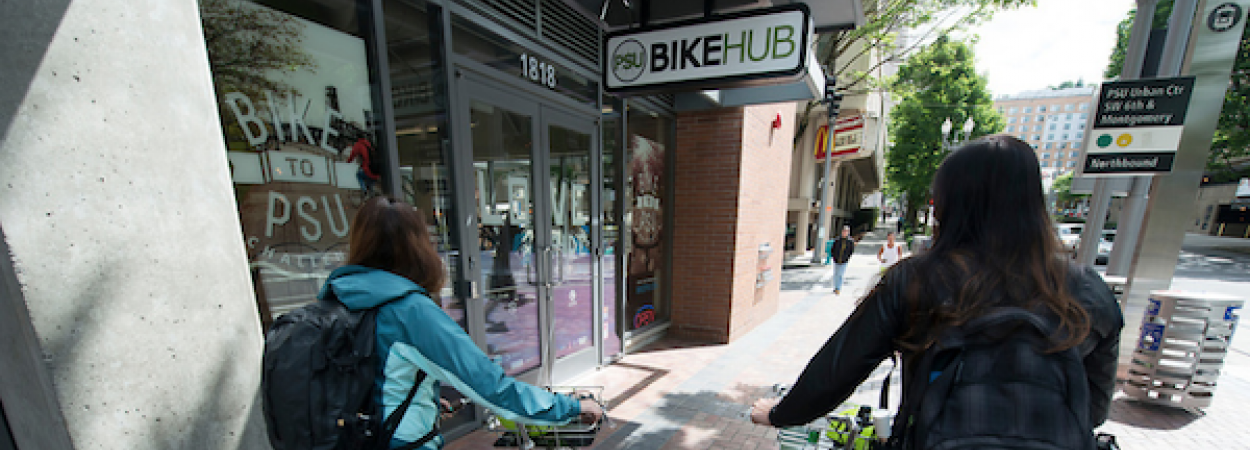
The Portland State University Bike Hub has received funding to purchase 25 electric bikes via a new grant from Portland General Electric.
The Bike Hub is a full-service retail bike shop on campus, opened in 2010. The shop offers long-term bike rental through its VikeBike program, a fleet of over 140 bikes offered at low cost (or no cost, based on need). The program’s existing fleet was assembled by collecting and refurbishing abandoned bikes on campus and made available to students for long-term rentals.
PSU will use this funding to purchase 25 Batch Bicycles e-bikes, to supplement the rental fleet and provide greater access to those living further from campus or those with physical barriers to cycling, and serve as a pilot program toward the eventual full replacement of the rental fleet with e-bikes.
Read…
Read More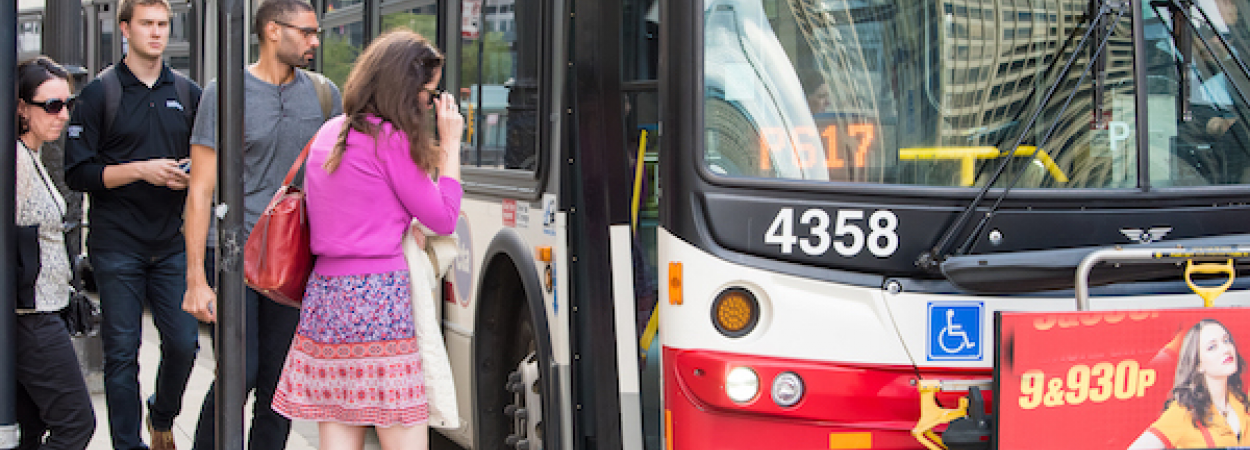
Photo by Page Light Studios/iStock
Two national research centers at Portland State University have been awarded a new contract from the National Academies of Science (NAS): TCRP J-11/Task 40: Homelessness: A Guide for Public Transportation. We interviewed the two principal investigators to learn more about this new collaboration:
JOHN MACARTHUR, Sustainable Transportation Manager, Transportation Research and Education Center (TREC) at Portland State University
Five years ago the NAS completed TCRP S…
Read More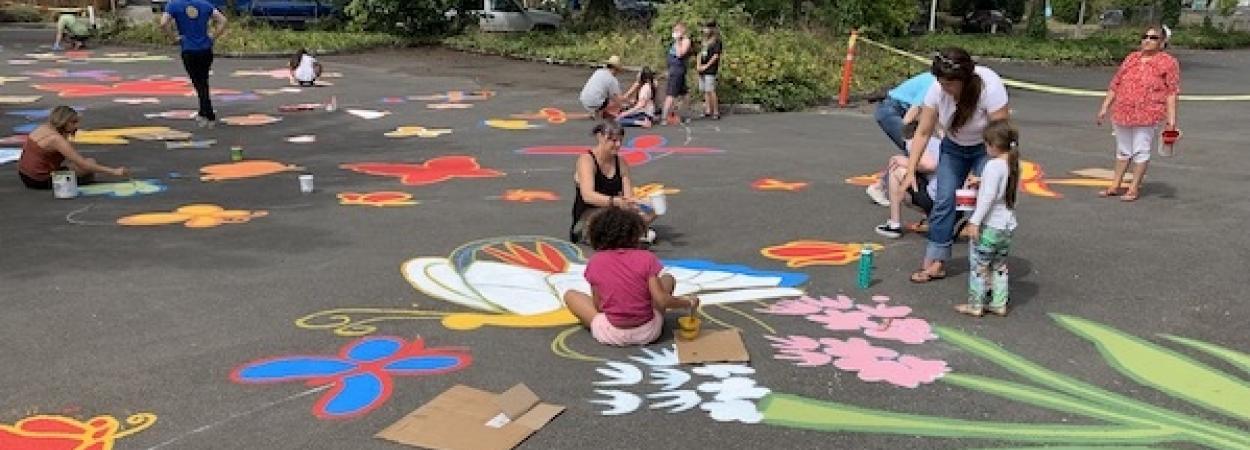
Photo by Sam Balto
Since 2013, local transportation activist group Better Block PDX has developed partnerships with organizations across the Portland Metro area. Most notable were the connections that emerged between the communities’ needs for tactical urbanism solutions and the expertise of Portland State University (PSU) transportation students.
Over the last few years, that collaboration evolved and formalized into Better Block PSU, a pathway program that integrates tactical urbanism into the engineering and planning curriculum at PSU. Now led by PSU’s Transportation Research and Education Center, the latest project to advance through the program is Re-imagining a Safer Route to the César Chávez School: N. Willis Blvd. & N. Portsmo…
Read More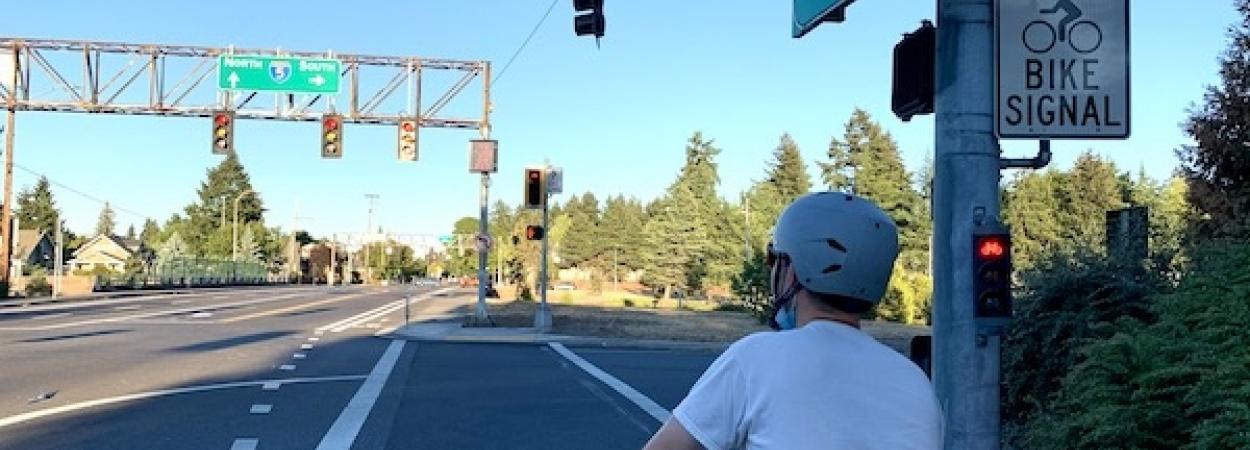
Sponsor: National Cooperative Highway Research Program (NCHRP)
Research Team Lead: Christina Fink, Toole Design Group
Portland State Investigators: Christopher Monsere, Nathan McNeil and Sirisha Kothuri
One of the most common locations for motor vehicle-bicyclist crashes is at controlled intersections. Particularly dangerous is the conflict between through bicyclists and turning drivers (either left or right). Despite widespread acknowledgement of this problem, transportation engineers and planners still lack definitive guidance on how to safely and effectively design for…
Read More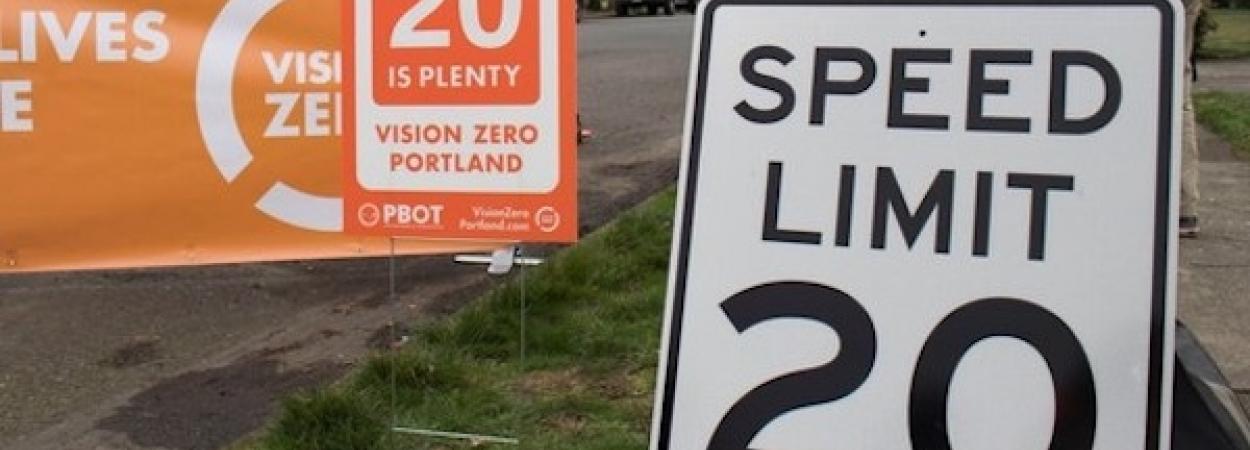
Photo by Portland Bureau of Transportation
Christopher Monsere, Sirisha Kothuri, and Jason Anderson; Portland State University
